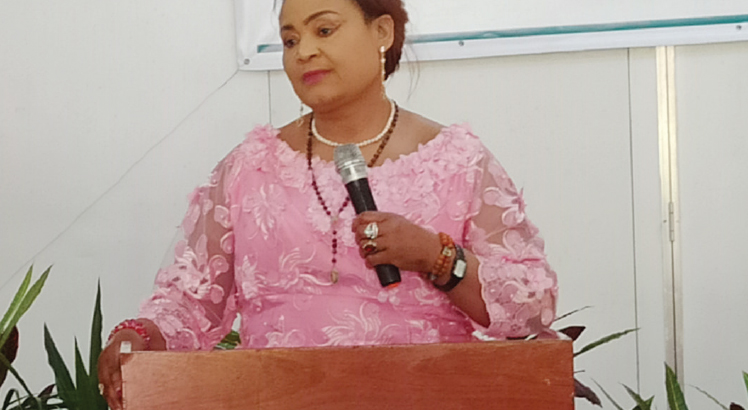‘Lifeless’ trust sucksin K475 million
For four successive financial years, Treasury has allocated a total of K475 million to the Disability Trust Fund (DTF) that is not serving its intended purpose of advancing disability initiatives.
DTF is an establishment of the Disability Act of 2012 meant to advance the welfare and rights of persons with disability through provision of financial resources for implementation of disability initiatives.
Both the Minister of Gender, Community Development and Social Welfare Patricia Kaliati and DTF board chairperson Steven Msowoya, confirmed in separate interviews on Tuesday that the fund, which has been receiving funds since 2019, has not benefitted persons with disabilities.
They, however, said all bottlenecks to the fund’s operationalisation, such as getting clearance from the Ministry of Finance to invest part of the funding, having been cleared.
While the minister indicated that only K250 million has been received from Treasury, Weekend Nation’s analysis of national budget statements show that K475 million has so far been allocated to DTF.

this fund
The fund got its first allocation of K200 million during the 2019/20 fiscal year.
In 2020/21, the provision was reduced from K200 million to K100 million, and then K75 million in 2021/22 before being increased to K100 million in the current fiscal year.
Presenting the budget on February 18 this year, Minister of Finance and Economic Affairs Sosten Gwengwe said: “Madam Speaker, to continue to empower persons with disabilities, K100 million has been allocated to the Disability Fund.”
Further, the ministry allocated K5 billion to disability programmes in the 2022/23, which was in line with cost estimates in the National Disability Mainstreaming Strategy for 2022.
Kaliati said while government would have loved to operationalise the fund as early as “yesterday”, the process was delayed by people who were assigned to do the work.
She said: “They were taking time so we have pushed them because we need this fund as soon as possible. The needs of persons with disabilities are so enormous and the Disability Fund is so crucial as it will help us address the challenges being faced so we cannot afford to wait any longer.”
One of the factors that have delayed operationalisation is failure to develop guidelines and appoint trustees to manage the fund.
Since its establishment in 2019, government only appointed the fund’s board of trustees in March last year.
Msowoya, a renowned disability rights campaigner and former chief executive officer of the Malawi Council for the Handicapped, confirmed his team was only appointed early last year.
“It’s more than a year when regulations were gazetted. The board was set up around March or April and by July 2021 we had formulated the guidelines on how the fund would be managed, the purposes, etc. However, there were other issues we needed to clear,” he said.
According to Msowoya, the guidelines stipulate that 15 percent of the funding will go towards administration costs, 30 percent for investment and 55 for disbursement to beneficiaries.
“The 55 percent for disbursement is ring-fenced, meaning that we cannot use that money for anything else other than disbursement. That money will be disbursed as grants, loans or as subsidies,” he said.
The other challenges, according to Msowoya, were lack of a secretariat and getting clearance from the Ministry of Finance to invest 30 percent of the fund for sustainability.
Currently, the trust is manned by officers from the Ministry of Gender, Community Development and Social Welfare who have other substantive duties.
Federation of Disability Organisations in Malawi acting executive director Symon Munde said the delay to roll out the fund has caused a great challenge to persons with disabilities in that they could not invest in the sustainability of their organisation and its affiliate members.
He said: “DTF is supposed to fill the gap that is left by other funding agencies. So, the financial resources are meant to scale up our work and also help procure assistive devices that would not be supported by any other scheme but since the Act was passed in 2012 we have not seen anything substantial.
Ministry of Finance spokesperson Taurai Banda promised to respond to our inquiry on why government had for four consecutive financial years funded a trust that was not in operation and how the funds were being utilised, but he had not responded by press time.
But a governance and accountability advocate Willy Kambwandira described the development as unfortunate and demanded an immediate audit of the funds.
Kambwandira, who is executive director of Centre for Social Accountability and Transparency, said it was sad that such things were happening at a time disability organisations such as the Association of Persons with Albinism in Malawi were struggling for survival.
“The revelations also put to question the oversight role of our Parliament. This is where we need Parliament to take a strong scrutiny of the budgets instead of just focusing on the Constituency Development Fund.
“Again, Treasury’s conduct on management of the fund is questionable and raises serious questions of accountability. It is sad that the fund had no guidelines and has not been audited. This violates Section 133 (2) of the Public Audit Act and subjects the fund to abuse.
“Our major worry is that there is a big risk that the fund could be subjected to abuse and one would only speculate that these delays are deliberate. Treasury must clearly account for the resources that have been channelled to this account for years.”
When asked whether DTF has been audited since it started receiving funding in 2019, National Audit Office spokesperson Rabson Kagwam’minga asked for more time before responding to our inquiry.
According to the 2018 Population and Housing Census, the prevalence rate of disability is at 10.4 percent of the population meaning that the country’s estimated population of 20 million, has two million persons with disabilities.





